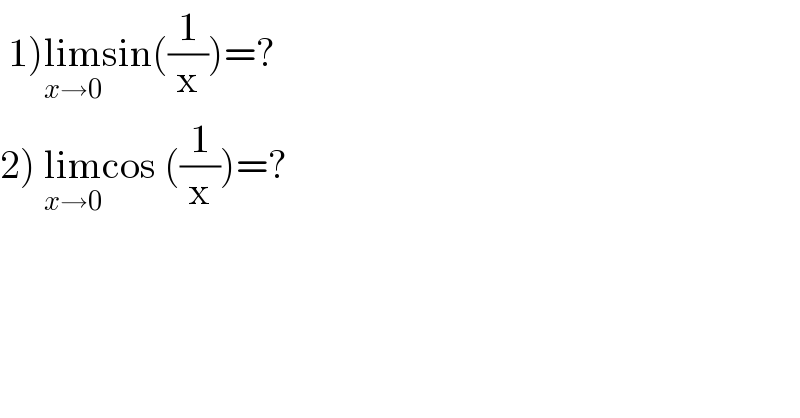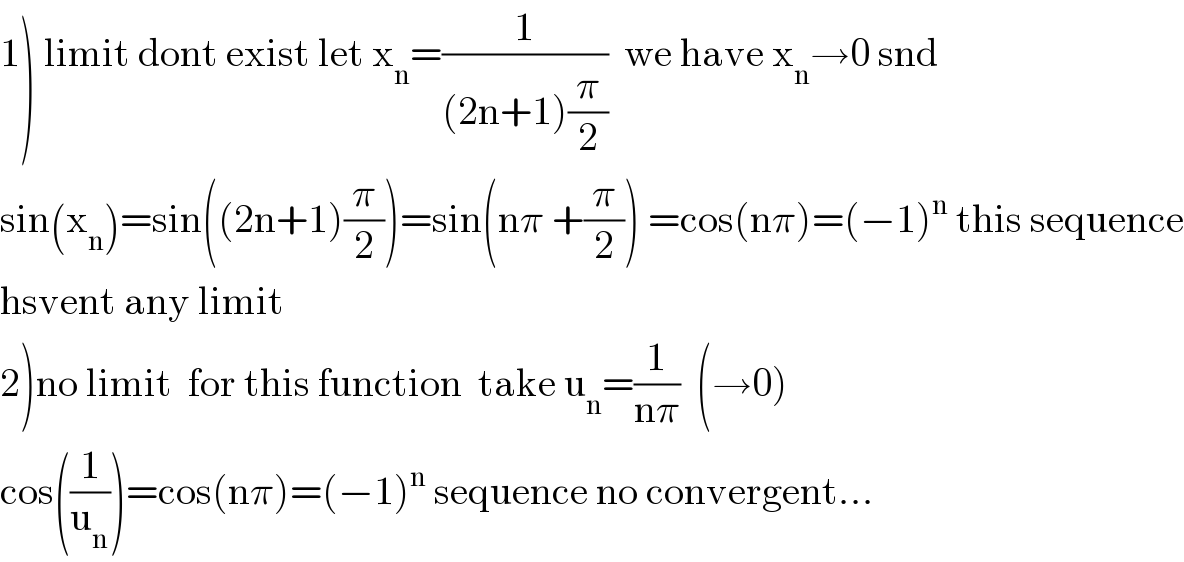
Question and Answers Forum
Question Number 110647 by Khalmohmmad last updated on 29/Aug/20

Answered by mathmax by abdo last updated on 30/Aug/20

| ||
Question and Answers Forum | ||
Question Number 110647 by Khalmohmmad last updated on 29/Aug/20 | ||
 | ||
Answered by mathmax by abdo last updated on 30/Aug/20 | ||
 | ||
| ||